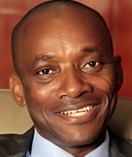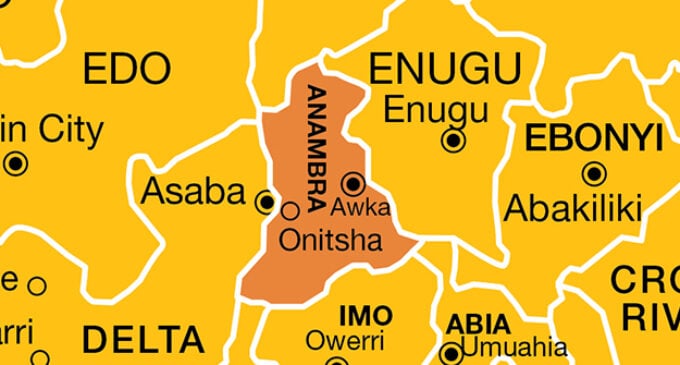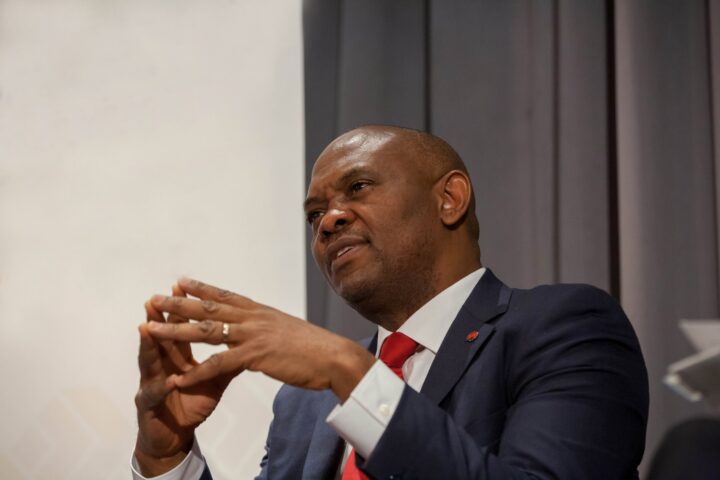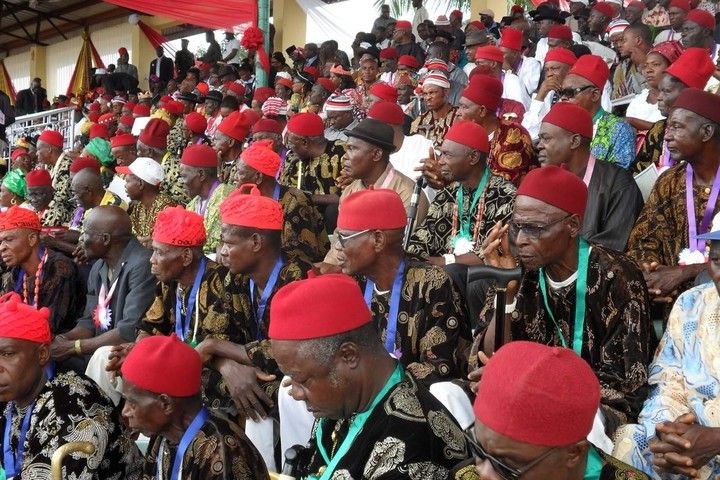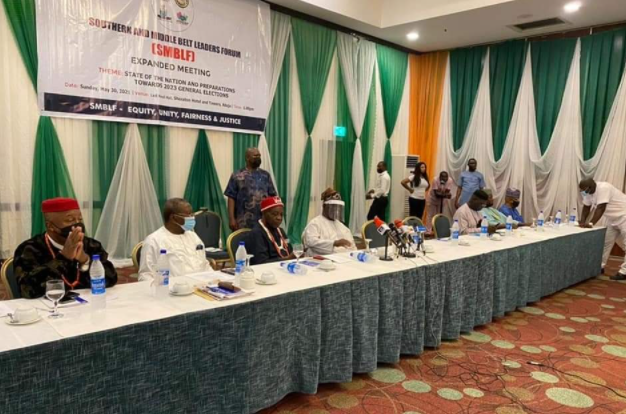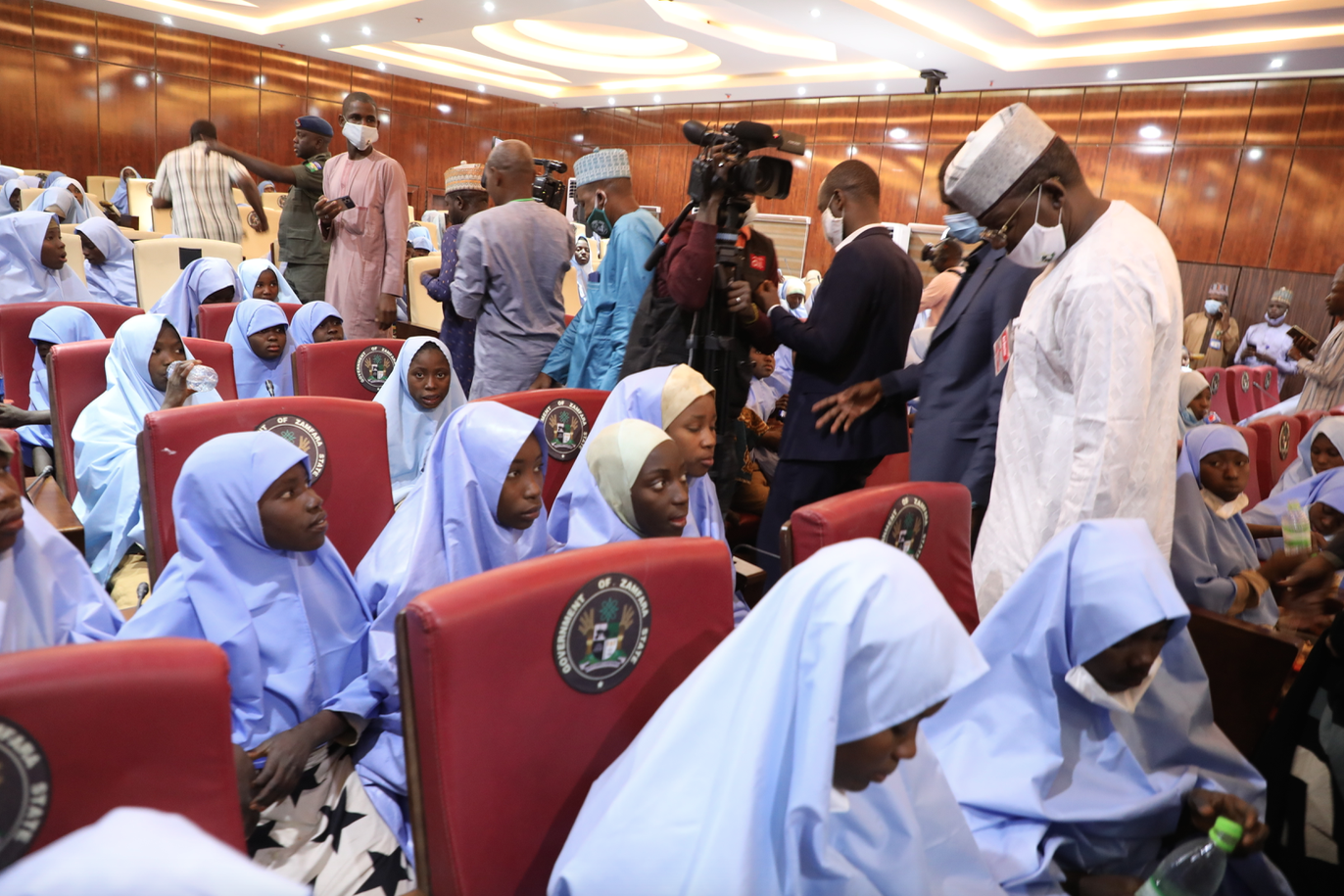The heat is on in Anambra for the election of the next governor of the state. The government who will get Anambra to its desired greatness. Anambra is almost there. But it has a lot more work to do to be really there.
Anambra state represents a glimmer of excellence in Nigeria. It has the highest number of millionaires per capita anywhere in Africa. Arguably, it could compete on this note globally. In terms of educational attainment, Anambra competes with the likes of Imo and Delta states for the winner of the prize of the best graduating students in West Africa certificate examination every year. It has the largest industrial capacity in Nigeria apart from arguably Lagos State, Nigeria’s commercial capital. Apart from Onitsha main market, which is Africa greatest single market, the rest of Anambra is an open commercial arcade. Everywhere is a market, hence it is the state with the highest per capital asset base. Anambrarians are the least poor of Nigerians in actual terms. So, Anambra is an outlier in two important indicators of collective wellbeing: wealth and education. Of course, the state is also richly endowed with vital minerals and agricultural resources. It has one of the largest gas deposits in Nigeria.
We now know that development is much more than resource endowment. It has generally been believed that stocks of financial and physical Capital accumulation and human capital have separated the development from the undeveloped countries of the world. In earliest era of development economics, the focus of on financial and physical capital accumulation. W.W. Rostow wrote about the stages of growth. In the initial stage, the focus, according to Solow, is capital accumulation. The country that wants to develop must build a large stock of financial stock. This requires massive saving. As the first black Nobel Laurate in Economic, Arthur Lewis, put it, such a country must aim at saving about 14 percent of its national wealth.
Much later the focus on what causes economic development shifted to human capital. It is not physical capital that matter most for those who wants to make the transition from underdevelopment to economic development. Paul Romer offered human capital as the difference makers. In his view, “Nations are poor because their citizens do not have access to the quality of ideas that are used in industrial nations to produce economic values”. This means that until such non-industrial nations are able to generate quality ideas (which are represented by the quality of education and innovation. This is called the ‘second generation’ theory. The capital accumulation theory is called the ‘first generation’ theory.
Advertisement
There is ‘third generation’ theory- the institutional economics perspective- developed largely by another Nobel Laureate in Economics, Professor Douglas North who in his classic 1991 article in the Journal of Economic Science titled, ‘Institution’ argues that economic development depends on the quality of institution and not necessarily on resource endowment or capital accumulation. In his words, ‘institutions’ are “humanly devised constraints that structure political, economic, and social interactions”. These institutions include law, norms, procedures, and patterns of social behavior. The point of institutional economics is that the quality of law, legal institutions, constitutional and conventional norms determined the possibilities of economic and social development. So, whereas Paul Romer thinks that the difference between nations is the quality of their ideas, Douglas North thinks it is the quality of their institutions.
Let us go back to Anambra. By every credible and relevant statistic, Anambra is the financial powerhouse of the country with more billionaires than any other place in the continent and industries and commercial outfit than most states in Nigeria. That qualifies it for rapid economic growth amongst states in Nigeria under the ‘first generation’ theory. The incredible human capital in terms of university graduates, many of them leading professionals across the world and sectors position Anambra as a winner under the ‘second generation’. We are not too sure whether Anambra is an outlier in terms of the quality of those ‘humanly devised constraints that structure political, economic, and social interactions’ that constitutes the heart of the ‘third generation’ of development theories.
We will interrogate this last point later in the speech.
Advertisement
So, in a sense, Anambra is already in a good spot is it stands potentially strong on two of the three categories of theories of development. we can single out Nnewi and Onitsha as two metaphors of the potentials for Anambra to become a Taiwan-Singapore- Dubai as one of its leading politicians had dubbed it. Many years ago, the late renowned economist at the Massachusetts Institute of Technology (MIT), Lester Turrow wrote a book with the title ‘Fortune Favors the Bold’. This book looks at the emerging economic landscape and argues for bold policies that will lead to higher productivity. Interestingly, the book paid a compliment on the Nnewi as the hub of what could become Africa’s real technological take-off.
Anambra could be the hub of Africa’s technological take-off. We have seen the rudiments and the launching pad of this take-off. But we have not seen a take-off. Experts on technology and innovation have a lot to say. But one thing is sure we are still lacking the political, the leadership quotient and the institutional facilitation for the Lester Turrow’s prophecy to be a reality. So, if we put it in the three generational theory perspective, Anambra has got its financial capital accumulation and human capital to a large extent. What it is missing is the right institutions to drive its march toward become technological and commercial hub in Africa. That is, becoming Africa’s Taiwan, Singapore and Dubai. So, in the imagination of economic theory, we have sorted out W.W. Rostow. We have largely satisfied Paul Romer. But we are yet to get to Douglas North. Getting to Douglas North is solves the problem of governance.
Anambra is preparing for its governorship election. This election holds the key to a lot of things. It is important for the entire southeast because Anambra has always been an economic center of the southeast. Recently, it has become a political exemplar that the southeast political destiny is not going to be defined by the sort of governance going on it Imo and Abia for some time. Every southeasterner long for the recovery of governance like we saw in Anambra in the days of Mr. Peter Obi. Not that Anambra has become a political success story. Far from it. There are many blemishes that needs to be cleansed to become a true city on a hill for southeasterners. But the trajectory Anambra began in the early 2000, engineered largely by a coterie of professionals and technocrats. We see a glimmer of hope of resurgence of visionary and transformative leadership of the southeast. From this perspective, every southeasterner has a sizable stake in the outcomes of the Anambra election.
The Anambra election presents an opportunity to interrogate where we are and what we need to do and become to actualize the prophesy of Lester Turrow. What do we need to turn the prophecy into reality? How do we get the right institutions to turn the financial and human capital into collective prosperity and political stability? We start by looking at what happened in the three countries Anambra politician like to reference in their vision statements: Singapore, Taiwan, and Dubia. I will replace Taiwan with South Korea. We already know too much for about the founding Prime Minister of Singapore. He has attained the status of a leadership icon in the 21st Century next to Nelson Mandela. Lee Kuan Yew tells us that leadership matters. Why does leadership matter. In democracy people, the citizens matters because democracy is about the people. So how does leadership then matter?
Advertisement
Leadership matters because it mobilizes the people for the hard work required to solve their problem. Whoever reads Lee Kuan Yew’s autobiography will recognize that it was a hell of work to get Singapore from a third world to a first world in economic growth. It took enormous intellectual and moral energy to build a dedicated leading team and to coordinate them to build world class infrastructure and social norms. Singapore tells us that leadership matter because it helps people to learn important lessons. It is often said that the US Presidency is a bully pulpit. From there the President speaks to mobilize and also inspire the people. Every leadership position is both a bully pulpit and a bedside. From it the leader helps the people understand why there is need for change. Leadership in Nigeria usually lacks articulation. The result is that the people miss their way. Our leaders do not know the way and they lack the articulation to point the people to the way to prosperity and freedom. Lee Kuan Yew knew the way and knows how to create pictures and images that reinforce the urgency of transition and transformation. Anambra would need such leadership to get to the next stop toward Singapore.
Effective leadership helps people to endure pains that are necessary for transformation. We talk about two types of leaders: transactional and transformational leaders. There is no debate about what kind of leadership Anambra needs at this time. It is a transformation leadership. Valuable and lasting change requires pains. People will suffer pains- something excruciating pains- if they want to get to a really high level in life. Only a Lee Kuan Yew will be sincere and committed to help people bear the necessary pains of transformation because they will be the first to bear such pains. That is through the power of sacrifice and authenticity. Authentic leaders are first to embrace the painful change and thereby help the people to go through the thorny path. This may be what the legendary Zik meant by ‘shine the light and the people will follow’.
Transformative leaders like Lee Kuan Yew help to mobilize the citizens for transformative and adaptive work. There is no effective leadership without a leading team. An effective leader builds an effective leading team. An effective has competences to deal with adaptive challenges. It must be a multivariant team with reinforcing skills and competence to deal with adaptive challenges because the problems of leadership in a transitional society is not just technical. It is adaptive. Without effective leadership you cannot solve adaptive problems because they require simultaneous transformation of different forms of institutional stasis.
Ultimately, leadership matters because without it there will be no effective communication of vision and values that support change. We have missed for too long in the southeast. Occasionally, we catch a glimpse of a leadership that is capable of grand visioning and effective communication of the values that drive such vision once in a while. We need to grasp it with our hands. Anambra offers the best opportunity for a lasting encounter with a visionary and communicative leadership.
Advertisement
So we now know why and how leadership matters. We used Singapore’s Lew Kuan Yew as a tour guide. But what say of him can be said of General Park of South Korea who began the revolution that transformed South Korea from a low-income country to a high-income, innovation economy. Whereas Lee Kuan Yew was a highly educated lawyer and economist when he came to power in Singapore, General Part was a military officer. Despite their different educational pedigree they embodied the same genie of transformative leadership. General Park outlined a vision that moved South Korea from agrarian revolution to heavy-duty manufacturing and now innovative technology economy. South Korea is an illustrious member of the East Asian economic miracle that taught the world that the 21st Century can still be a century of fast-tracked economic development that goes together with low inequality.
There is an ideological debate over what is responsible for the East Asian miracle. Neoliberal economists have argued that these countries surrendered to the superior logic of the market. Anti-libertarians argue that the miracle is a result of the strong hand of the state directing how the market works. Robert Wade gave a definitive explanation of the cause of the miracle in his concept of ‘governing the market’. in his view, the successful East Asian countries effectively managed the market. instead of surrendering to the invisible hand of the market, they used the visible hand of the state to steer the private sector to higher efficiency and strategic investment. Joe Studwell makes similar point about the economic miracle of East Asian countries. In his book, ‘How Asia Works: Success and Failure in the World’s Most Dynamic Region’, he argues that the success of the region, in contrast to South Asian countries like Thailand, Philippines, and Indonesia, is because its governments ‘proactively intervened’ in agriculture and manufacturing – that “foster early accumulation of capital and technological learning”. So, at the heart of the miracle is state capacity supplied by ‘effective leadership’. effective leadership fostered ‘capital accumulation’ and ‘technology learning’ to steer those countries towards real and sustainable economic and social development. Again, leadership matters whether in Singapore, South Korea, and Dubai.
Advertisement
Anambra can learn from these successful Asian economic and imitate real development that will make the prophesy of Lester Turrow a reality. Credible and effective leadership is necessary to get to such Singapore-Taiwan-Dubai as Anambra politicians like to boast. Such a leadership must be built on a new social capital that includes social norms and social habit that encourage clean politics and enable strategic response to its problems. When such a leadership emerges, it will take some of these actions to build the right institutions that convert accumulated financial and human capitals into real and sustainable development.
These actions are:
• Relearning opportunities for the many entrepreneurs. Alot of young entrepreneurs became millionaires through the Igbo Apprenticeship System, but they have not been able to inculcate current realities like robotics, machine learning and artificial intelligence. Such relearning will scale up the operations of the manufacturing sector.
• Enhancing the economic value of Onitsha market through innovation and technology.
• Improving the value of the service sector leveraging technology
• Making Anambra a hub for warehousing and Logistics in West Africa.
• Focusing on aiding the growth of the manufacturing sector in the state. This requires building industrial estates for export processing and ensuring a state-provided electric power that never goes off. In power generation, govt should domesticate policy that can attract PPPs in mini grids up to 1MW. PPPs can also be used to develop industrial estates in electricity clusters. There should be a deliberate effort to direct diaspora remittances into infrastructural projects like these.
• Establishing ICT hubs that turn technology learning into innovation.
• Prioritizing Security intelligence and community vigilance. The lack of the aforementioned created room for the situation of faceless insecurity. All border towns should be networked and receive appropriate security vote and equipment to provide intelligence on movements into Anambra. The towns’ vigilante networks should be synchronized across the state with necessary communications gadgets, training, and expert manpower to provide effective security.
• Private security companies should be encouraged play a huge part in our internal security architecture. An example is that shops along Nnobi road in Nnewi experience frequent burglaries. A security company that provides motion detection remote alarm trigger and street surveillance can help the vigilante groups and police overcome the challenge. This can be applied to uninhabited areas (agụ/ịkpa, forests, waterways, etc) to checkmate festering of insecurity under the cover of darkness. The Igbo saying that forests have ears should be taken literally by the next administration to ensure that nowhere in Anambra is a hiding place for any criminal activity.
• Subject to financial ability, all armed security personnel operating within the state should be provided with body cams. There should be strict laws that provide severe punishment for any unlawful death during law enforcement operations.
Advertisement
Dr. Sam Amadi is director of the Abuja School of Social and Political Thoughts
Advertisement
Views expressed by contributors are strictly personal and not of TheCable.
